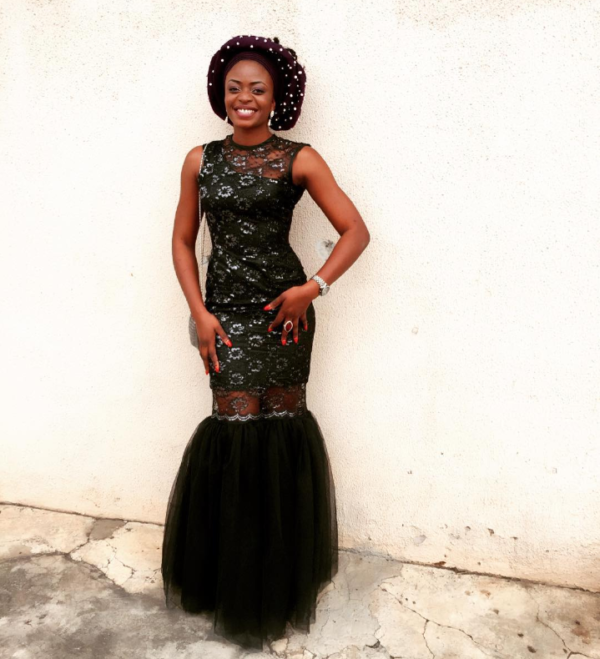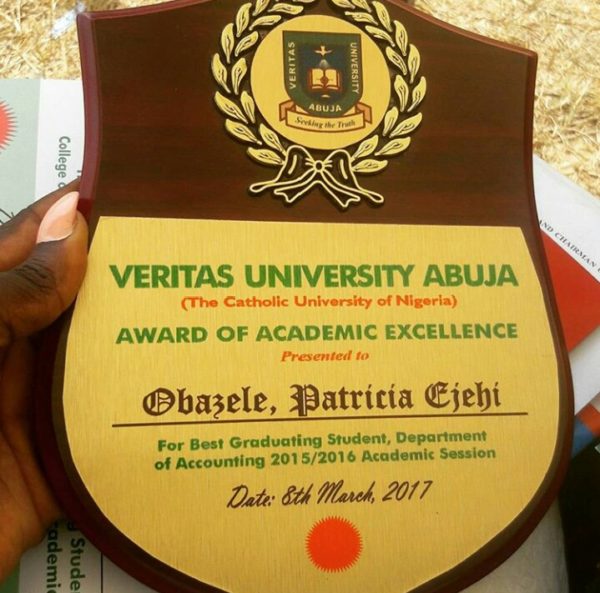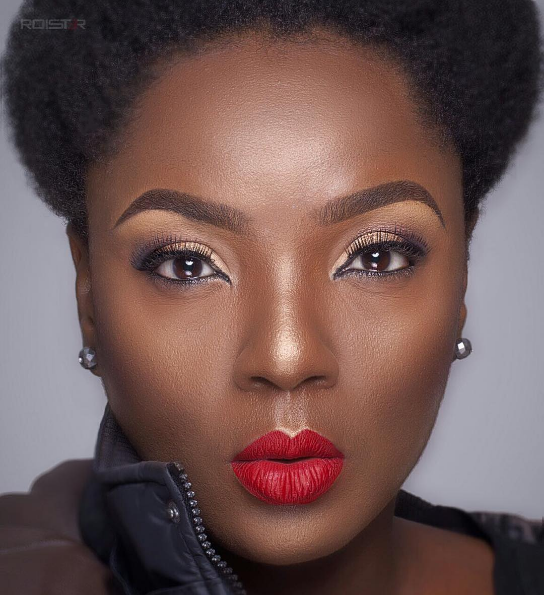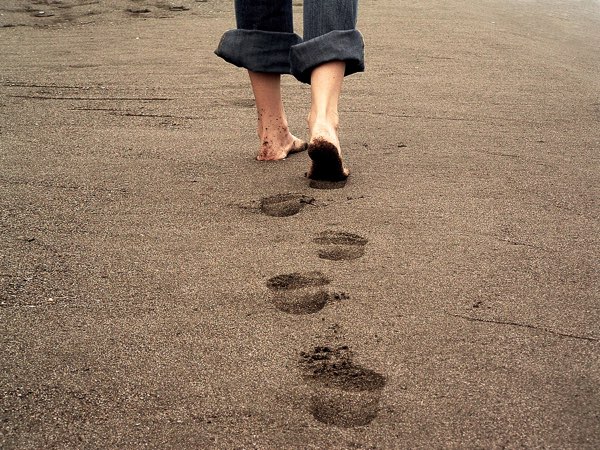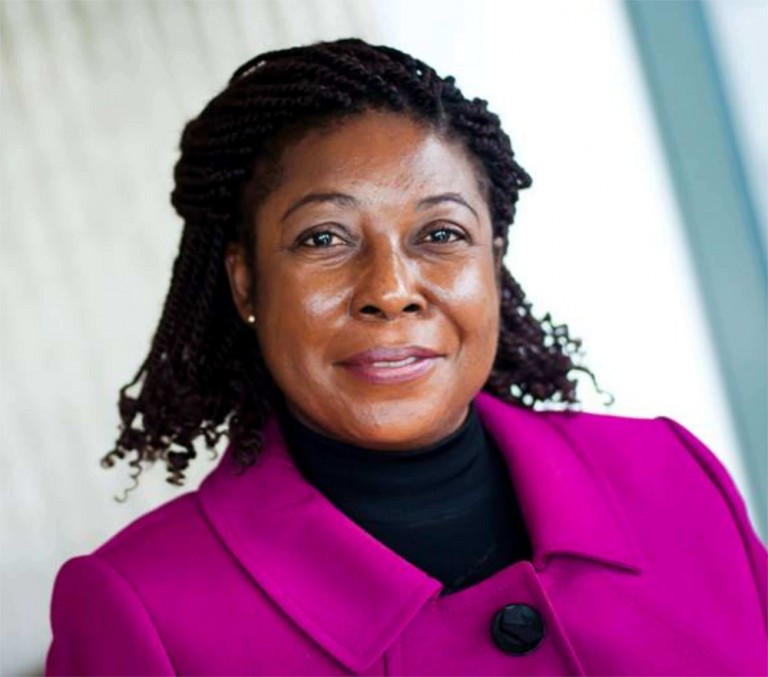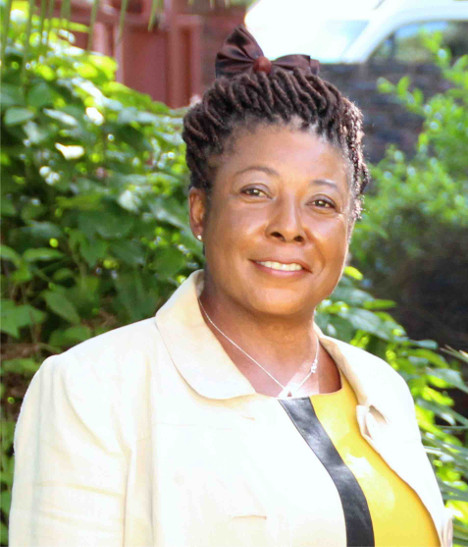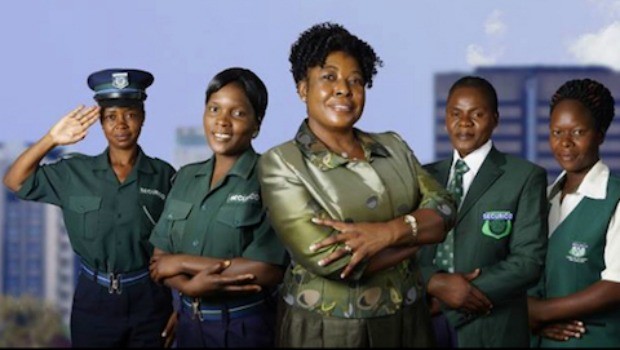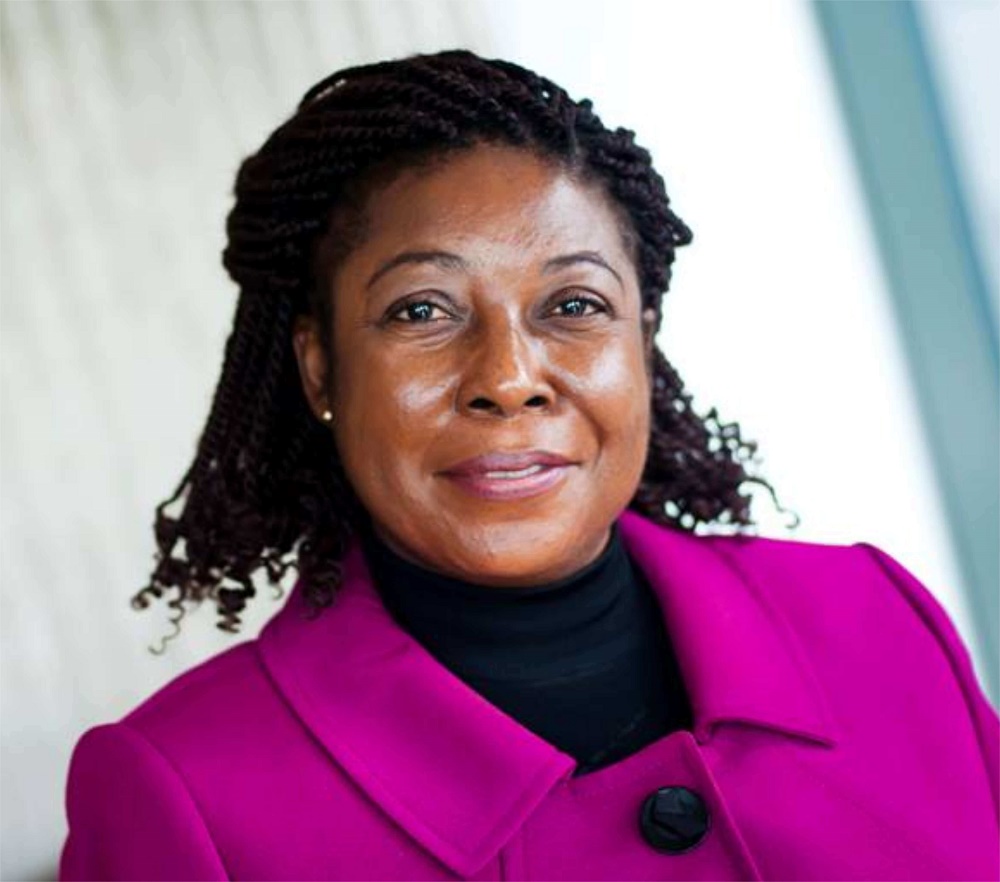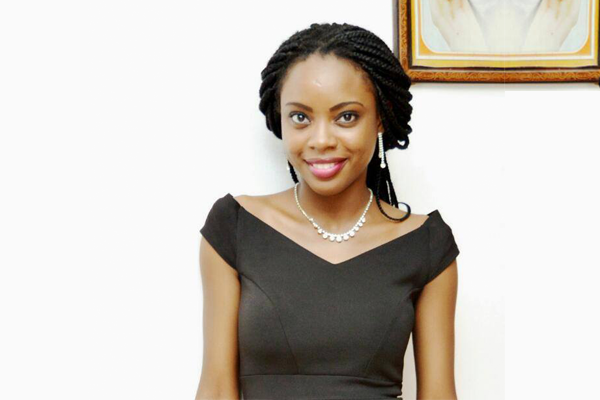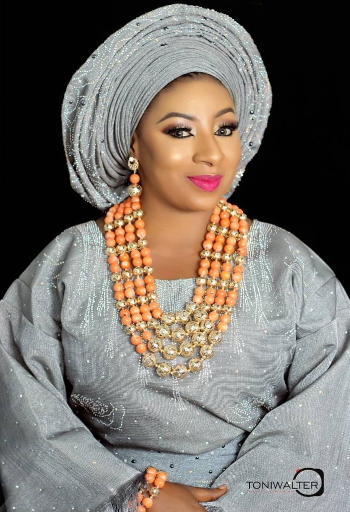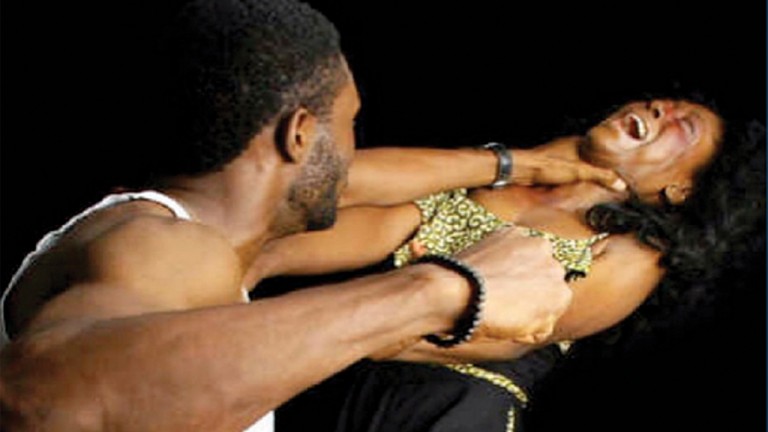White pick-up truck drives slowly into a deserted plot of land on the edge of the forest. There are two men in the front seat and one is wearing a red and white scarf over his face only exposing his eyes. The camera zooms into the scene as the men turn and speak in Hausa to the little girl in the back seat. She is no more than 12 years old. She climbs out of the truck alone and walks into the woods and through the other side until she reaches the highway. Here she finally rests, sits by the roadside, her head in her hands and waits for a taxi.
This is where the story begins for viewers watching the new short documentary, Through Her Eyes, a deeply moving account of a young girl’s internal journey to pulling off a suicide attack in Northern Nigeria. For many people living in northeastern Nigeria, the threat and fear of suicide attacks remain strong. Just two weeks ago there was news of another bombing in Maiduguri that reports say claimed at least 9 lives. The suicide bombers were young girls, a continuing phenomenon that is just another unimaginable tragedy of the ongoing reality of living in a world of insurgency and terrorism. There is a double mourning and an intensified horror that comes with every new headline of children used as weapons of warfare. But it remains a real and growing problem. According to UNICEF statistics, in 2015, 44 children were used in suicide attacks and 75% of those children were young girls.
Through Her Eyes was written and directed by Nadine Ibrahim, a young Nigerian filmmaker born in Kaduna and still based in northern Nigeria. So far, the short film has been featured in two international film festivals. It is a semi-finalist at the Los Angeles Cinema Festival and last November was nominated in the short film category at the Africa International Film Festival. For such a short film it is a stunningly powerful depiction, offering viewers an imaginative look at the life of a 12-year-old female suicide bomber. It tells the story of Azeeza, a young girl kidnapped from her village during a terrorist raid and trained to carry out a suicide attack. We see the world through her eyes, the people she encounters along the way to her destination, the other children she sees playing, and the conversation she has with the unknowing taxi driver carrying her to the place of the crime. Along the way, Azeeza flashes back to scenes from her own normal life before the kidnapping.
By choosing to tell the story from the perspective of the young girl, Ms. Ibrahim gives voice to a segment of society that usually remains voiceless. How does a young girl get to the point of committing such a morally incomprehensible act? We are reminded not to forget that such children are often victims themselves and not just villains. The film takes a single narrative on this large topic to raise vital and sensitive questions about the conditions under which young female suicide bombers find themselves.
Ms. Ibrahim is only 23 years old. She studied media and film production at the University of Gloucestershire and has worked on projects for the United Nations, Fictionless films, Ebony Life TV and FilmOne. She already knows the value of using her passion for the arts to tell important stories that can help alter perspectives on sensitive topics. I had a chance to watch Through Her Eyes during a private screening in Abuja last month. I knew I had to interview Ms. Ibrahim about her the film. She shared openly and with enthusiasm about her art and her convictions. It is refreshing to engage such a young woman who seems to have a clear sense of how to use her gifts to try and make a positive mark in the world.
Being a Filmamaker
I’ve always wanted to tell peoples’ stories, to create a platform for other voices and I realized I could do it in a visually captivating manner. I want to tell stories that can change the world. I think film can be used as a powerful tool to generate awareness about what’s going on in our country and the world in general.
Inspiration behind Through Her Eyes
To be honest, a part of it was from listening to my mother almost everyday on the phone during her interviews and in conversations. She would always go on about how urgent this situation was and how things needed to change. I heard her say, ‘Children are not born terrorists.” And that just stuck with me. Something automatically clicked and I knew I wanted to explore this subject more through film. And when I kept seeing stories in the media I decided to do a bit of research. I was stunned by how many children below the age of 18 were being recruited and sent out to do these crimes. I couldn’t get my head around it. I wanted to look at female suicide bombers as victims and not just criminals. I wanted to show people a different perspective.
My Mum, My Motivation
My mother gives a voice to the voiceless. She cares more about humanity than anything else. She always says, “Leave no one behind,” and I strongly believe that she actually stands by what she says. She’s dedicated her life towards making the world the type of place that everyone wants to actually live in. That’s why she worked so hard as Minister of Environment and with the SDGs, because it stands for what she wants the world to be. I thought to myself, if she can change the world, why can’t I?
I attended your private screening and loved how you framed the event. You had it in an art gallery surrounded by beautiful paintings all with themes of women, Islam and Northern Nigerian and Islamic cultures. Why did you do it this way?
I chose to show the film in an art gallery because of my passion for art. I love photography, painting and film. I love how you can use different mediums to tell the same story. And the story is so much bigger than what I get to show of it. I want people to understand the terrorism but I don’t want the main discussion to be about a terrorist group and how horrific they are, but rather I want people to think about why this is even happening and what can be done about these devastating consequences. I also want people to understand that there is a rich and beautiful culture to this part of the world that exists alongside the horror.
Challenges
Yes. A lot of people were scared of telling a story about the insurgency in the northeast. They were worried that if they took part in the filming it could put their lives in danger. I found it hard to find actors willing to be in the film. My first actress to play Azeeza eventually backed out of the role because her mother felt it was too unsafe. So two days before filming she called and said she couldn’t do it. A lot was riding on production and I was in a bind. It was nerve wracking.
Overcoming it
I started frantically asking around if anyone knew young female actresses. Eventually someone directed me to a young drama student at an Islamic primary school in the northern part of the country. I met with the student’s mother and she was keen on it because she believed strongly in the message of the film. But when we started filming I did have to have security on location.
Lessons learnt from making the movie
It was my first solo project in Nigeria. I learned a lot in terms of how things work here and I met interesting people who joined the cast and crew. No one on the production was older than 26 years old. We were a young crew with a similar passion to tell important stories about our country. That was very motivating and inspiring for me to give this film my best. But funding was hard to find because of the subject matter. When we were making the film there was a lot in the news about the insurgency and attacks, and people didn’t want their names attached to a film that would be making a statement about the issue.
You are a Muslim. What impact did your faith perspective have in making this film?
Islam is a religion of peace. Seeing it portrayed as a violent religion concerns me because people will misinterpret Islam to equate to terrorism. They won’t go further and research and see that is not true. So much of what insurgents preach about Islam is a misinterpretation of the Koran. What I show in my film has happened in so many countries besides Nigeria. Children in Turkey, Iraq, and Syria have been indoctrinated to believe that performing these crimes is in line with Islam. But in my film I tried to show that internal struggle a young person might have in believing this. The purpose of the film is not to point fingers, or to put my cast or anyone at risk. I’m just trying to tell a story the way I see it. Just creating awareness of what’s happening in our country. But I actually don’t mention any specific terrorists group in the film because I feel like it is a universal story. Using children as suicide bombers is happening in several countries around the world.
Expectations
I hope when people watch the film that they will think differently about what is happening in the country and that they will reconsider how their particular tools can be used to engage in important issues in our country. The youth can’t just leave it to the older generation because it doesn’t seem to be affecting us directly. At the end of the day it will affect us all.
Where can people view this film and what is next for you?
It’s available online on Youtube. I’m going to start working on my feature film. After this I’m ready to challenge myself even more and test the waters. It will be a coming of age story.
